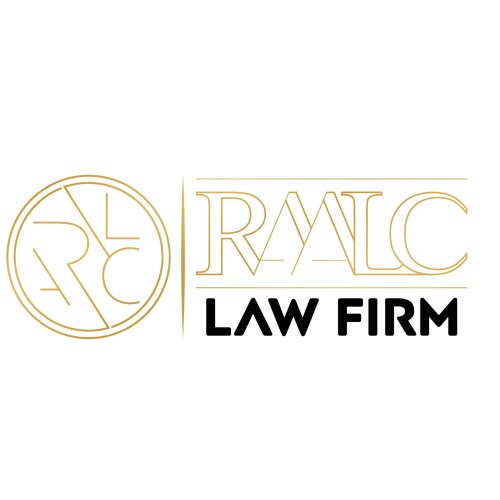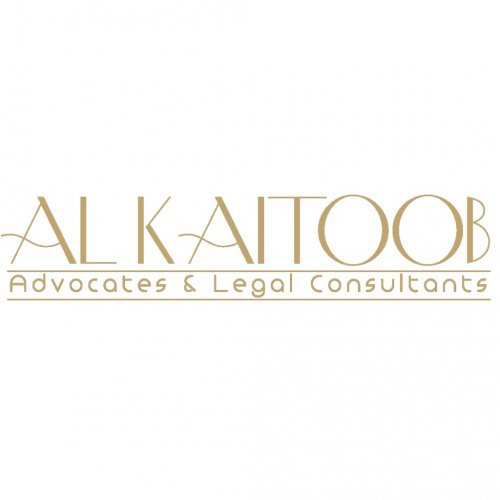Best Funds & Asset Management Lawyers in Dubai
Share your needs with us, get contacted by law firms.
Free. Takes 2 min.
List of the best lawyers in Dubai, United Arab Emirates
About Funds & Asset Management Law in Dubai, United Arab Emirates
Dubai has established itself as a leading regional hub for funds and asset management, attracting both local and international investors. The sector incorporates a wide range of activities, including the creation, management, and distribution of investment funds, collective investment schemes, and portfolio management services. Dubai’s strategic position, modern financial infrastructure, and robust regulatory frameworks have helped foster a dynamic and growing asset management industry.
Fund and asset management laws in Dubai are tailored to attract foreign investment while maintaining high standards for investor protection and market integrity. Various legal structures and regulatory environments are available in Dubai, including those in the Dubai International Financial Centre (DIFC) and the mainland (onshore Dubai), each with distinct rules and requirements.
Why You May Need a Lawyer
Navigating the legal landscape of funds and asset management in Dubai can be complex. Some common situations where you may require legal help include:
- Setting up a new investment fund, whether under DIFC or onshore Dubai jurisdiction
- Advising on regulatory compliance for fund managers and asset managers
- Structuring investment vehicles and collective investment schemes
- Drafting and negotiating fund offering documents and partnership agreements
- Adhering to anti-money laundering (AML) and know your customer (KYC) requirements
- Resolving disputes between fund managers, investors, and service providers
- Assisting with licensing, registration, and ongoing regulatory reporting
- Advising on cross-border investment structures and tax efficiencies
- Providing guidance on investor protections and risk management
A lawyer with expertise in funds and asset management can help you understand your options, avoid regulatory pitfalls, and safeguard your interests.
Local Laws Overview
Key regulations and legal considerations regarding funds and asset management in Dubai include:
- DIFC Regulations: The Dubai International Financial Centre is governed by English-language common law and has its own independent regulator, the Dubai Financial Services Authority (DFSA). The DFSA sets out detailed rules for fund formation, licensing, and management. These rules cover collective investment funds, private and public funds, qualified investor funds, and related licensing requirements for fund managers.
- Mainland Dubai Regulations: Investment funds established outside the DIFC are regulated by the UAE Securities and Commodities Authority (SCA). The SCA issues licenses for fund managers and sets requirements for the offer and marketing of investment funds in the UAE.
- Sharia Compliance: Many funds in Dubai are structured to comply with Islamic finance principles as per Sharia law. Legal advisors can ensure that investment structures, documentation, and asset selection are Sharia compliant when required.
- AML and KYC: Both onshore Dubai and DIFC impose strict anti-money laundering and know your customer obligations on funds and asset managers, requiring ongoing due diligence and reporting.
- UAE Foreign Investment Law: The law governs the extent and manner in which foreign investors can participate in fund structures, including foreign ownership limits and corporate structuring possibilities.
- Taxation: The UAE generally offers a tax-friendly environment for funds and asset managers, with zero personal income tax and limited corporate taxes in certain free zones, but tax advice and compliance are still crucial.
Frequently Asked Questions
What is the difference between setting up a fund in DIFC and mainland Dubai?
The DIFC offers a common law framework and its own regulatory authority, making it attractive for international investors and fund managers. Mainland Dubai funds operate under the UAE SCA and follow civil law principles. DIFC funds often have more flexibility and are favored for sophisticated and cross-border activities.
Do I need a license to manage a fund in Dubai?
Yes, managing a fund or offering collective investment schemes in Dubai requires prior licensing from the relevant authority, either the DFSA for DIFC-based funds or the SCA for mainland funds.
Are there specific requirements for Sharia-compliant funds?
Yes, Sharia-compliant funds must adhere to principles such as the prohibition of interest and investment in restricted businesses. Consultations with Sharia scholars and certifications are typically required.
Can foreigners establish and manage funds in Dubai?
Foreign investors and fund managers can establish and manage funds in Dubai, subject to meeting the eligibility and licensing requirements set by the DFSA or SCA.
What are the main steps in registering a new fund in Dubai?
The process typically involves selecting the appropriate jurisdiction (DIFC or mainland), preparing a detailed fund prospectus, appointing approved service providers, undergoing regulatory review, and obtaining the relevant license or approval.
How are disputes in the asset management sector resolved in Dubai?
Disputes can be resolved through the courts of the relevant jurisdiction or via arbitration. The DIFC has its own courts, while mainland disputes go through the UAE judicial system. Arbitration is often favored for its confidentiality and speed.
What are the reporting obligations for Dubai-based fund managers?
Fund managers must regularly report to the relevant regulatory authority (DFSA or SCA) on fund performance, compliance status, AML/KYC adherence, and other matters as required by law.
What protections exist for investors in Dubai funds?
Regulations require clear disclosure of risks, independent oversight such as custodians and auditors, and strict segregation of client assets. Regulatory bodies also provide channels for complaints and redress.
Are there restrictions on marketing or distributing foreign investment funds in Dubai?
Yes, the promotion and marketing of foreign funds are strictly regulated, with approval required from the DFSA or SCA. Unlicensed marketing can result in penalties.
How does Dubai's regulatory approach compare to other leading financial centers?
Dubai's regulatory framework, especially within the DIFC, is aligned with global best practices and comparable to standards in London, Singapore, and Hong Kong, but always consult a local legal expert for specific comparisons and updates.
Additional Resources
- Dubai Financial Services Authority (DFSA) - Regulatory authority for the DIFC
- Dubai International Financial Centre (DIFC) - Common law financial free zone
- UAE Securities and Commodities Authority (SCA) - Regulates mainland investment funds
- Dubai Chamber of Commerce - Provides information on doing business in Dubai
- Dubai Islamic Economy Development Centre (for Sharia finance resources)
- Local and international law firms with funds and asset management expertise
Next Steps
If you need legal assistance in the area of funds and asset management in Dubai, consider the following steps:
- Identify your specific needs - are you setting up a fund, seeking regulatory compliance, or involved in a dispute?
- Consult with a qualified lawyer or law firm specializing in funds and asset management in the relevant jurisdiction (DIFC or mainland Dubai)
- Prepare all relevant documentation, including fund proposals, contracts, and compliance records
- Research regulatory requirements with the authorities listed in the resources section above
- Schedule an initial consultation to discuss your goals, challenges, and gain clarity on potential legal strategies
Legal and regulatory environments in Dubai evolve regularly. Always work with a locally qualified lawyer to ensure compliance and protect your interests in the funds and asset management sector.
Lawzana helps you find the best lawyers and law firms in Dubai through a curated and pre-screened list of qualified legal professionals. Our platform offers rankings and detailed profiles of attorneys and law firms, allowing you to compare based on practice areas, including Funds & Asset Management, experience, and client feedback.
Each profile includes a description of the firm's areas of practice, client reviews, team members and partners, year of establishment, spoken languages, office locations, contact information, social media presence, and any published articles or resources. Most firms on our platform speak English and are experienced in both local and international legal matters.
Get a quote from top-rated law firms in Dubai, United Arab Emirates — quickly, securely, and without unnecessary hassle.
Disclaimer:
The information provided on this page is for general informational purposes only and does not constitute legal advice. While we strive to ensure the accuracy and relevance of the content, legal information may change over time, and interpretations of the law can vary. You should always consult with a qualified legal professional for advice specific to your situation.
We disclaim all liability for actions taken or not taken based on the content of this page. If you believe any information is incorrect or outdated, please contact us, and we will review and update it where appropriate.

















